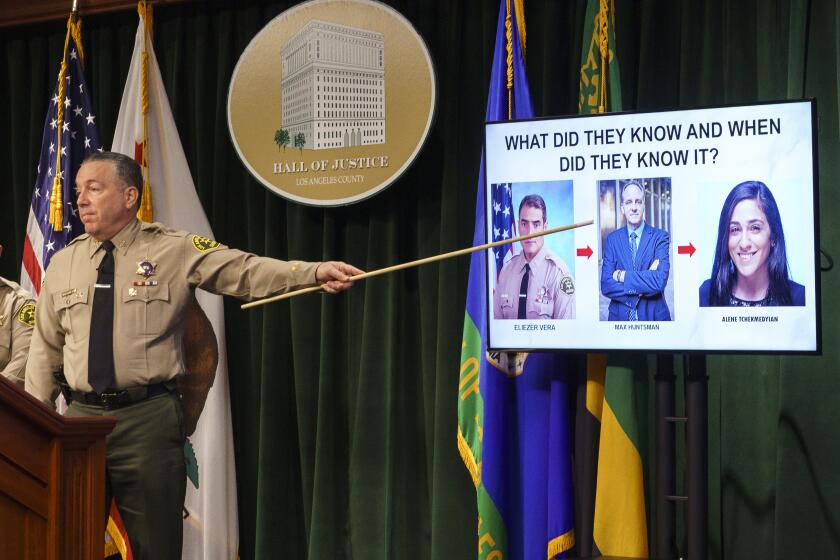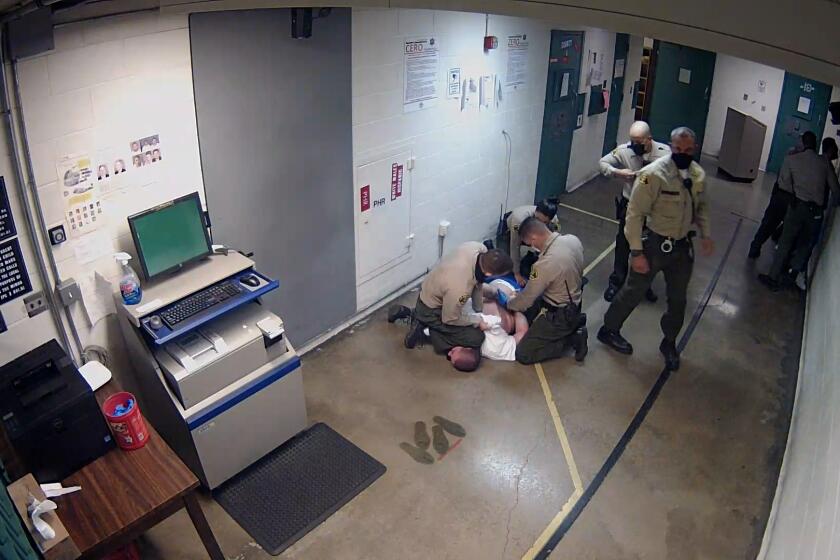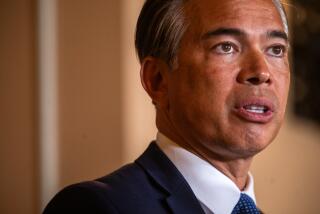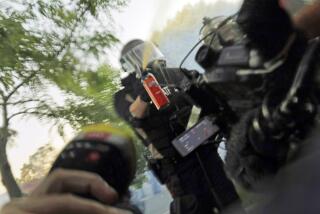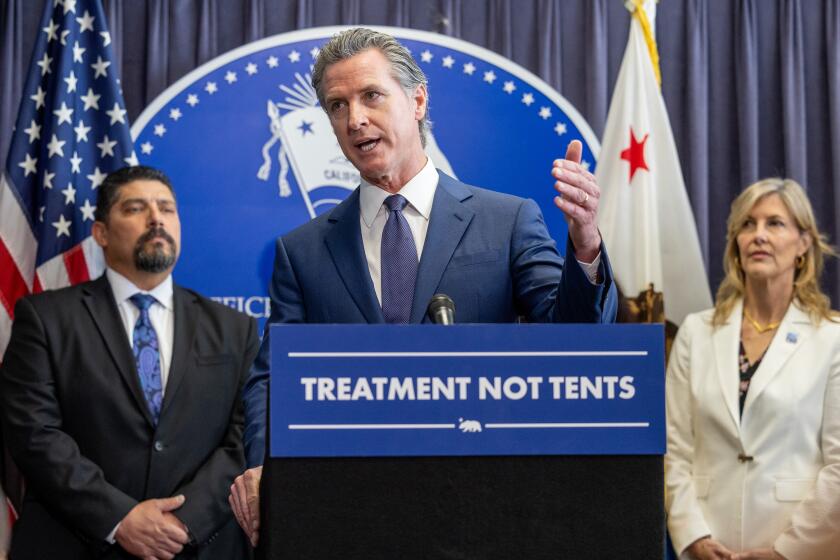L.A. Times protests sheriff’s criminal leak investigation against reporter
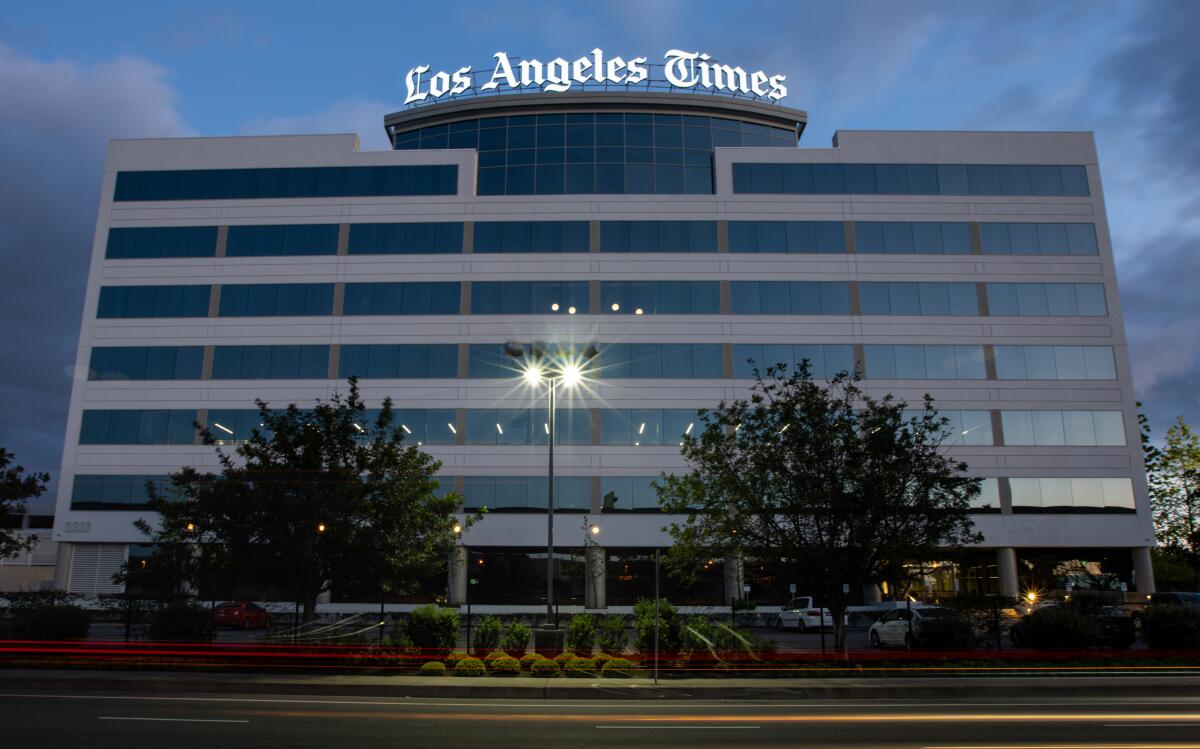
This letter was sent Tuesday to Los Angeles County Sheriff Alex Villanueva by the general counsel of the Los Angeles Times. It protests a criminal leak investigation of Times reporter Alene Tchekmedyian for her reporting on the department’s cover-up of an incident in which a deputy kneeled on the head of a handcuffed inmate for three minutes.
On behalf of the Los Angeles Times and Alene Tchekmedyian (“L.A. Times”), I am writing in response to your remarks at today’s press conference, in which you claimed the Los Angeles Sheriff’s Department is criminally investigating a journalist, Ms. Tchekmedyian, for reporting on a security video showing a deputy kneeling on the head of a handcuffed inmate for three minutes. This outrageous assertion appears to be a thinly veiled attempt to intimidate Ms. Tchekmedyian for reporting unflattering (but entirely accurate) information about the conduct of individuals in your department and allegations of a cover-up by you and other officials. If the Los Angeles Sheriff’s Department actually initiated an “investigation” of Ms. Tchekmedyian, it would contravene well-established constitutional law, which bars prosecutions of news reporters for publishing information from confidential official records, including leaked videos that involve matters of public interest. Although I would have assumed that someone in your position would be familiar with these longstanding legal principles, this letter should leave no doubt that any attempt to prosecute Ms. Tchekmedyian — or to threaten her with prosecution, as your announcement appeared intended to do today — is an abuse of your official position that risks subjecting you and the county to legal liability.
First, in Bartnicki v. Vopper, 532 U.S. 514 (2001), the United States Supreme Court held that journalists could not be held liable for publishing a recording of an illegally intercepted phone conversation that they received from a source, even though disclosure was prohibited under federal and Pennsylvania wiretapping statutes, and the journalists “did know — or at least had reason to know — that the interception was unlawful.” Id. at 517-518, 535. The Supreme Court explained that “a stranger’s illegal conduct does not suffice to remove the 1st Amendment shield from speech about a matter of public concern.” Id. at 535.
Sheriff Villanueva announces criminal investigation of Times journalist who revealed an incident in which a deputy kneeled on the head of an inmate.
The California Supreme Court adopted the reasoning of Bartnicki in Gates v. Discovery Communications, 34 Cal.4th 679 (2004). The United States Supreme Court “began by assuming that the media defendants were aware the recordings were of illegally intercepted communications and that disclosing their content was illegal,” but that merely knowing that the information had been “illegally intercepted” did not change the fact that the media defendants “lawfully obtained tapes of the conversation….,” according to the California Supreme Court. Id. at 691 (citing Bartnicki, 532 U.S. at 524- 525). The allegation that a journalist “knew” that a third party had done something illegal in obtaining or disclosing information did not convert the journalist’s conduct to illegal conduct. Instead, as the California Supreme Court stated, the United States Supreme Court ruled that “criminalizing disclosure of the conversations implicated the core purpose of the 1st Amendment because it punished the publication of truthful information of public concern.” Id. at 692 (citing Bartnicki, 532 U.S. at 532-533).
Seven years ago, the Second Appellate District Court of Appeal followed Bartnicki in a case where several sheriff’s deputies tried to restrain publication of a Los Angeles Times article on internal hiring files that showed the Sheriff’s Department had hired some 280 employees with histories of serious misconduct. In Association of Los Angeles Deputy Sheriffs, et al. v. Los Angeles Times Communications LLC, 239 Cal. App. 4th 808 (2015), the Court of Appeal held that “criminal or civil liability” may not be imposed “upon the press for obtaining and publishing newsworthy information through routine reporting techniques,” and stated that “ordinary news-gathering techniques ‘of course, include asking persons questions, including those with confidential or restricted information.’” Id. at 819 (citing Nicholson v. McClatchy Newspapers, 177 Cal. App. 3d 509, 519-520 (1986)).
Officials were worried about the optics of the kneeling, “given its nature and its similarities to widely publicized George Floyd use of force,” a commander who was critical of the coverup wrote in an internal force review.
The deputies and their union made assertions similar to your statements today about an L.A. Times journalist receiving “stolen property”; they also claimed that it was a crime for a reporter to possess confidential records showing the deputies’ histories of dishonesty and misconduct. ALADS, 239 Cal. App. 4th at 818-820. The Court of Appeal rejected those claims as contrary to the “wealth of both State and Federal case law, discussing the protection journalists and the press enjoy under the 1st Amendment where there have been allegations that published or disclosed content had been illegally obtained.” Id. at 820 (citing, e.g., Bartnicki, 532 U.S. at 517, 535; Landmark Communications, Inc. v. Virginia, 435 U.S. 829, 838, 841 (1978) (1st Amendment protected newspaper from criminal conviction for publishing confidential proceedings of judicial review commission); Cox Broadcasting Corp. v. Cohn, 420 U.S. 469, 496 (1975) (1st Amendment defense applied to reporter who published rape victim’s name in violation of state criminal statute); Smith v. Daily Mail Publishing, 443 U.S. 97, 103 (1979) (invalidating state law that criminalized publication of juvenile suspect’s name without court permission); Florida Star v. B.J.F., 491 U.S. 524, 535-536 (1989) (1st Amendment protected newspaper that published rape victim’s name that was inadvertently disclosed in violation of Florida law)).
“In sum,” the Court of Appeal concluded, ALADS has cited no case permitting the kind of injunction it seeks here, to restrain a newspaper from publishing news articles on a matter of public concern: the qualifications of applicants for jobs as law enforcement officers. ALADS has cited no case because there is no such case. For more than 100 years, federal and state courts have refused to allow the subjects of potential news reports to stop journalists from publishing reports about them. Id. at 824.1
Here, as in these cases, the Los Angeles Sheriff’s Department could not constitutionally punish Ms. Tchekmedyian or L.A. Times for publishing security video footage showing a deputy kneeling on a handcuffed inmate, which you described as ”an obstruction of justice.” Likewise, the 1st Amendment would bar any criminal prosecution of an L.A. Times journalist for publishing information from internal Sheriff’s Department records which indicated that officials in the Department, including you, attempted to cover up the kneeling incident because they feared the “negative light” it could shed on the Sheriff’s Department. See here and here. It is a bedrock principle in the United States that we do not criminalize the receipt and publication of newsworthy information. Allegations of a cover-up by you, the Los Angeles County sheriff, and other officials, regarding a deputy caught on video kneeling on a handcuffed inmate easily qualify as matters of public interest subject to full 1st Amendment protection against any criminal investigation or prosecution.
L.A. County sheriff’s officials attempted to cover up an incident in which a deputy knelt on the head of an inmate, according to records reviewed by The Times.
Second, any attempt to search Ms. Tchekmedyian’s home, communications, or other property or data (or those of any other L.A. Times employee) in this matter would be illegal, and would subject you, the sheriff, and any other officials involved (as well as Los Angeles County) to significant legal liability.
California Penal Code § 1524(g) unequivocally provides that “[n]o [search] warrant shall issue for any item or items described in Section 1070 of the Evidence Code.” (Emphasis added.) Evidence Code § 1070 contains California’s statutory journalist’s Shield Law, which is virtually identical to the constitutional provision. See Evid. Code §§ 1070; Cal. Const., art. I, § 2(b). The Shield Law provides that a journalist “shall not be adjudged in contempt ... for refusing to disclose any unpublished information obtained or prepared in gathering, receiving or processing of information for communication to the public.” Cal. Const., art. I § 2(b); Evid. Code § 1070. The Shield Law provides Ms. Tchekmedyian and L.A. Times with absolute protection in this matter. Miller v. Superior Court, 21 Cal. 4th 883, 896-97 (1999)
Shield Law is absolute for a reporter subpoenaed by the People in a criminal case; the only competing interest that may be balanced against the journalist’s Shield Law rights is a criminal defendant’s right to a fair trial).
Consequently, Penal Code Section 1524(g) absolutely bars any search warrant directed against Ms. Tchekmedyian or any other L.A. Times employee in this matter, as well as any search warrant directed at any third-party custodian of their data or communications. See C.C.P. § 1986.1.
Any attempt to conduct such a search also would violate the federal Privacy Protection Act of 1980, 42 U.S.C. §§ 2000aa et seq. (the “PPA”). Like California’s Penal Code § 1524(g), the PPA “generally prohibits government officials from searching for and seizing documentary materials possessed by a person in connection with a purpose to disseminate information to the public.” Morse v. Regents of the Univ. of Cal., 821 F. Supp. 2d 1112, 1120-21 (N.D. Cal. 2011) (quotation omitted). See also Smith v. Fair Employment & Hous. Comm’n, 12 Cal. 4th 1143, 1236 n.11 (1996) (recognizing the PPA’s effect of “restricting the ability of government investigators to obtain documents from the media”).
The PPA broadly applies both to editorial “work product” and any other “documentary materials,” and it applies whenever the target of a search is “reasonably believed to have a purpose to disseminate to the public” information in a “newspaper, book, broadcast, or other similar form of public communication.” 42 U.S.C. §§ 2000aa(a)-(b). The PPA’s narrow exceptions for exigent circumstances or journalists suspected of personally committing criminal offenses are plainly inapplicable here. As discussed above, no legal basis exists for any criminal investigation of Ms. Tchekmedyian or any other L.A. Times employee in this matter; to the contrary, binding constitutional authorities hold that the 1st Amendment absolutely protects our journalists’ right to receive and publish newsworthy information, regardless of whether authorities might consider it “confidential.”
The PPA provides for a federal cause of action against state law enforcement officials who improperly target journalists. See Morse v. Regents of the Univ. of Cal., 821 F. Supp. 2d 1112, 1121 (N.D. Cal. 2011) (photojournalist whose camera was seized could bring PPA claim against the chief of the UC Berkeley police department); Citicasters v. McCaskill, 89 F.3d 1350, 1355 (8th Cir. 1996) (local prosecutor could be held liable under PPA based on seizure of videotape from television station).
You are on notice that if the Los Angeles Sheriff’s Department attempts to search the property or data of Ms. Tchekmedyian or any other L.A. Times employee in this matter, the department will have directly violated the PPA and clearly established constitutional law, and L.A. Times will seek every available remedy against you, the department, and every individual official involved in any such unlawful conduct. Because your statements at today’s press conference have created a concrete likelihood of such a legal claim, we demand that you and the department preserve all documents related to any “investigation” of Ms. Tchekmedyian or any other L.A. Times employee in this matter.
Sincerely,
Jeff Glasser,
General Counsel
Los Angeles Times
—
cc: George Gascon
Dawyn R. Harris
Kelli L. Sager
Dan Laidman
John Satterfield
1) The union and the Sheriff’s deputies ended up having to reimburse L.A. Times for all its attorneys’ fees under California’s anti-SLAPP law. See Civ. Proc. Code § 425.16(g).
More to Read
Start your day right
Sign up for Essential California for news, features and recommendations from the L.A. Times and beyond in your inbox six days a week.
You may occasionally receive promotional content from the Los Angeles Times.
